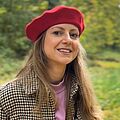Little Scientists overseas
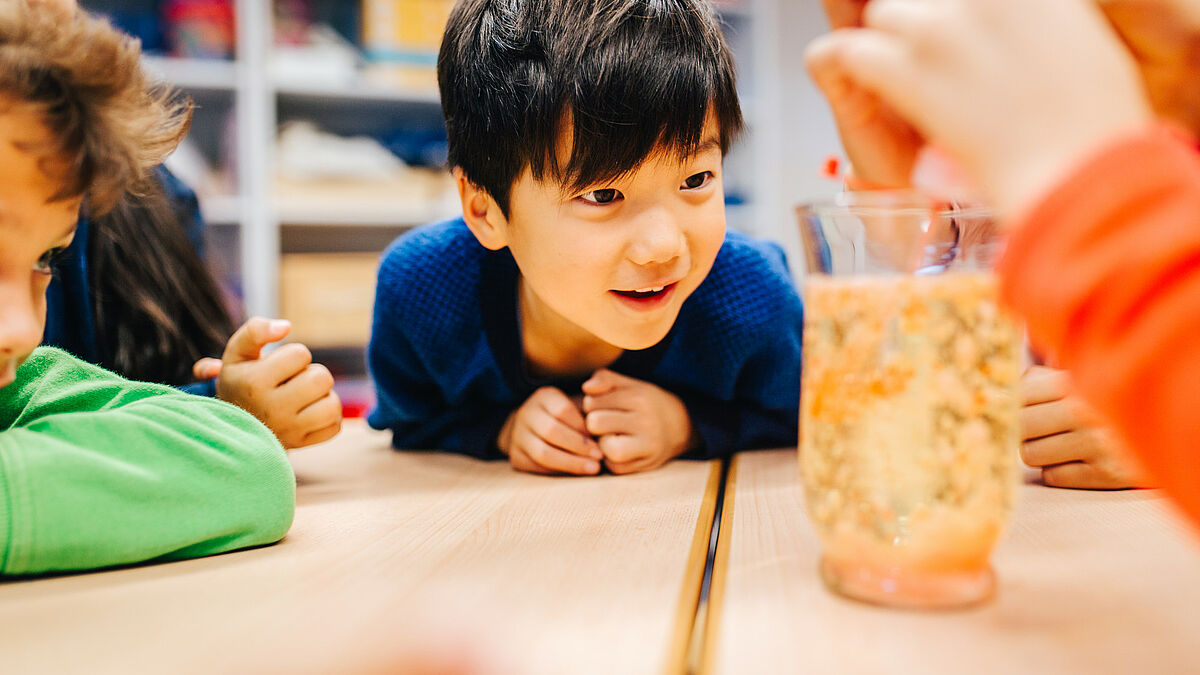
In November 2019 we spoke with Charlotte Goddard, a UK journalist who writes for Nursery World, the UK’s leading magazine for early years practitioners and decision-makers in the childcare sector. With an interest to learn more about the pedagogical concept behind our Haus der kleinen Forscher Foundation, Ms Goddard visited a kindergarten that is actively engaging in inquiry-based learning with its children. This is her article as it first appeared in the Nursery World online and print title.
Early Years Science - To the test
Charlotte Goddard, January 20, 2020. In a bright, spacious room in a nursery overlooking Berlin’s Natural History Museum, early years teacher Jendrik Besser is setting up a science experiment for a group of pre-schoolers. Fröbel-Kindergarten Charité Mitte’s ‘enquiry room’ (it could also be translated as ‘science room’ or ‘explorer’s room’) is lined with shelves and containers full of all kinds of interesting things – different shells, binoculars, books, a terrarium, even a replica of a human skull.
Mr Besser sets out some hairdryers and a box of items – a stone, a disposable coffee cup, a paper bag – on a table, and the six children burst into the room, very excited. They have been looking forward to this science session since they chose their activities from a range on offer that morning. Their teacher shows them a picture of a kite, starting a conversation about wind and what it does. The children recognise it as a kite they used in the autumn.
‘What is this?’ asks Mr Besser, showing them one of the hairdryers. ‘What can you do with it?’ He tells the children the hairdryers will become wind machines, and they start exploring, turning the dryers onto themselves and each other and feeling the air on their faces. Max finds the different settings, creating a stronger blast of air. ‘They are loud!’ says Paul.
Mr Besser shows them an item from his box – it’s a plastic bottle. ‘Can this fly or not fly?’ he asks. ‘It can’t fly!’ say the children. ‘Let’s try it out.’ The force of the air moves the plastic bottle across the table, and the children laugh. The bottle is replaced by a stone, which doesn’t move, and a paper bag, which shoots across the table and onto the floor.
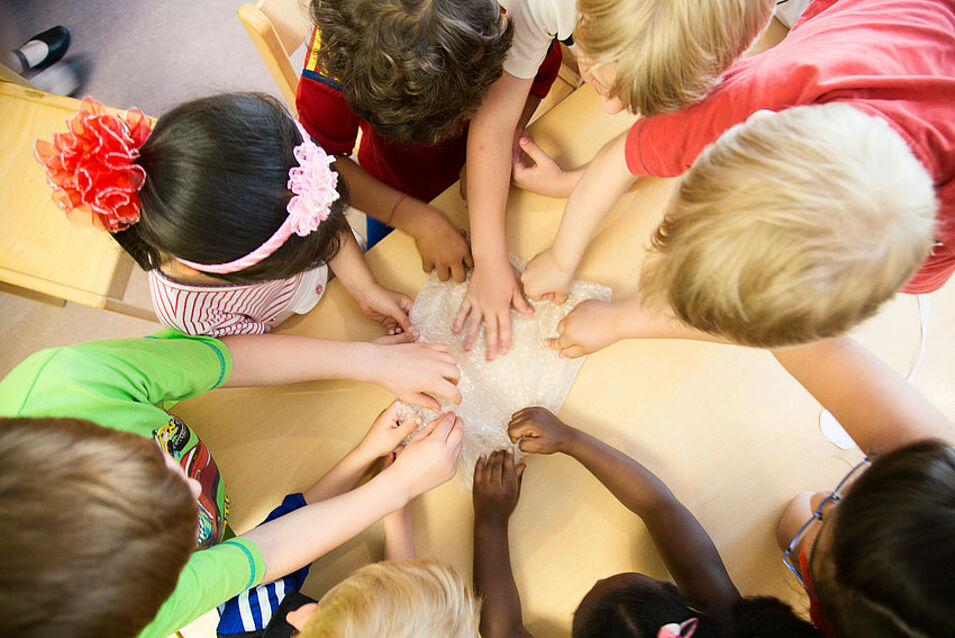
The children are learning the difference between light and heavy, about forces and about materials. However, they are also engaged in a way of learning that encourages them to ask questions, come up with theories, test the theories and adapt them based on what they have learned. This is something Germany’s Haus der Kleinen Forscher Foundation (Little Scientists’ House) refers to as ‘enquiry-based learning’.
Fröbel-Kindergarten Charité Mitte is one of many kindergartens and schools in Germany that are part of Haus der Kleinen Forscher Foundation, the country’s largest early years initiative. The kindergarten proudly displays its Little Scientists’ House certificate at the entrance, showing that practitioners have taken part in a wide range of training courses, giving them new ideas for activities and embedding an enquiry-based approach to children’s learning.
Around 5,300 settings have been awarded Little Scientists’ House accreditation since the foundation launched in 2006, and around 79,000 educators from 32,300 institutions have taken part in training. The foundation has reached 91 per cent of all education and care centres, 86 per cent of afternoon care centres, and 72 per cent of all primary schools.
Network of Trainers
Little Scientists’ House is the brainchild of two German physicists, Jürgen Mlynek and Jürgen Kluge. Both believed all children in Germany should be able to take part in scientific activities and pursue their own questions about the world in a way that would empower them to think for themselves and act responsibly. The initiative centres around early childhood education from the age of three to ten, focusing on science, technology, engineering and mathematics (STEM).
Little Scientists’ House is funded by central government, scientific bodies and businesses, including Siemens Foundation and Deutsche Telekom Foundation. It develops a wide range of training sessions and workshops for early years educators, focusing on different aspects of STEM, and underpinned by its enquiry-based pedagogy.
The foundation trains and accredits a network of trainers to deliver these courses, equipping them with knowledge about STEM and early education.
Workshops are very practical, materials are on the table and participants are able to experiment with them.
Janna Pahnke, Little Scientists’ House
‘Trainers are recruited by our 214 local network partners and accredited by the foundation, and might be professional trainers, pre-school teachers, retired people, researchers or others,’ explains Janna Pahnke, head of research and monitoring at the foundation. ‘There are around two-thirds from an education background, one third from a science background.’
In Germany, education is controlled by local government and each state has a different curriculum, so this local approach is vital.
The cost of the trainers’ own training is covered by the foundation. In some cases, teachers and kindergarten workers receive training for free, as the cost is picked up by the local network. If teachers have to pay themselves, the foundation recommends the cost should not exceed 50 euros per person. ‘Workshops are very practical, materials are on the table and participants are able to experiment with them and see what they feel like,’ says Ms Pahnke.
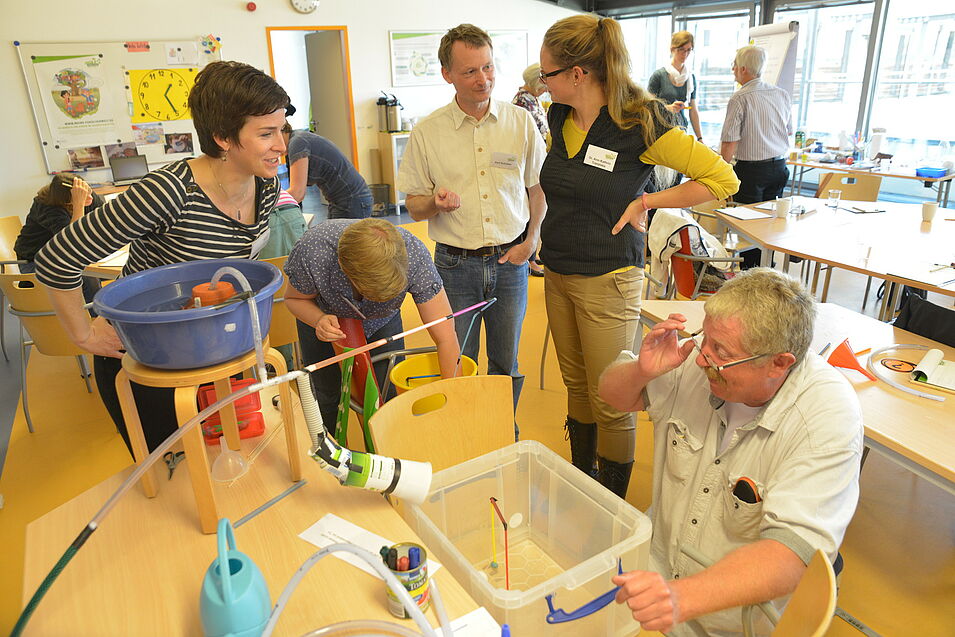
The most popular workshop is Investigating Water, which allows participants to explore water with all their senses, as liquid, solid and gas, and test which substances dissolve and which do not. Other courses include Investigating Air, Investigating Sound and Noises, Investigating Carbon Dioxide Gas and Find STEM Everywhere!, a workshop supporting practitioners to help children discover and research in everyday situations.
‘Educators are often searching for “experiments” or “topics” they can do with the children,’ says Ms Pahnke. ‘We want to inspire them about enquiry-based learning, the processes that underpin all scientific discovery. After some training courses and experience of following the children’s questions, they begin to do research in everyday situations, such as “it’s raining, and how can we use that as a learning experience and talk to children about what is happening?”.’
Becoming a Little Scientists’ House
The foundation sees education as a social process, with children learning from interacting with adults and other children through encouragement, individual exploration, and joint reflection. It recommends practitioners:
- build on the children’s prior knowledge, gaining an insight into children’s thoughts and experiences by listening closely to them, observing them, and asking them about their individual assumptions
- talk to the children: don’t explain things, but do ask leading questions
- encourage the children to reflect. If children develop ‘false’ concepts, for example ‘the wind comes from the trees’, the task is to draw their attention to possible inconsistencies – for example, to the fact that wind also occurs in places without trees. In this way, the educator prompts the children to develop a new theory themselves
- give the children free space to explore and enquire – whether a shelf full of materials in a corner of a room, or a whole room dedicated to exploration and enquiry, children will use the materials provided to try things out and to develop their own questions. Settings should find ways to provide them with the space they need to experiment.
Settings that win Little Scientists’ House accreditation, like Fröbel-Kindergarten Charité Mitte, have to show they regularly take children on ‘voyages of scientific discovery’. Nurseries and schools must demonstrate that scientific enquiry is an important part of children’s everyday lives, they must record their projects or enquiry activities, and practitioners have to take part in relevant training every year.
The foundation reviews applications, taking into account the setting’s pedagogical approach, resources, how activities are delivered and to what extent the setting works with other nurseries, schools and organisations. The accreditation is only available in Germany and is free to access, but has to be renewed every two years.
STEM education for sustainale development
The world is changing rapidly, and developments such as digitalisation, climate change, increasing social inequality and migration will impact the lives of people still in pre-school today. But early years educators can feel daunted when it comes to STEM, says Michael Fritz, the foundation’s managing director and a former teacher.
Our training helps practitioners support children become self-determined adults who can help shape global challenges.
Michael Fritz, Managing Director of the Foundation
‘Former colleagues say, “I became a kindergarten teacher because I wasn’t so good in school with maths”,’ he says. ‘But STEM is not just about maths and science. It is about feeling responsible for what is going on with our world and being able to change things in the future. Our training helps practitioners support children become self-determined adults who can help shape global challenges.’
Ms Pahnke agrees. ‘STEM education is not just about reproducing the “correct” explanations for particular phenomena,’ she says. ‘Some early childhood educators may feel they are expected to provide children with hard facts and all the right answers, which can be daunting. Instead, children should be accompanied in an enquiry-based exploration process that is oriented towards the scientific method. This process includes the observations, comparisons and classifications that children use to explore the world around them. The foundation’s programme is structured around familiarising primary school teachers and early childhood educators with this method, which does not require them to have expert knowledge in all STEM subjects.’
Inside and out
Back at Fröbel-Kindergarten Charité Mitte, some of the children try filling the bottle with water, to see if that affects how it moves. ‘It’s too heavy,’ says Mia. Two children decide to aim their dryers at a paper bag from opposite directions to see what will happen. Mr Besser brings out a paper kite the children made earlier and shows them how to make it fly.
The children move onto the floor, and soon paper bags and bottles are shooting into the corners of the room. Some have had enough and sit together on a mat looking at a book. ‘We might start up a topic, and some children will say enough for me, but maybe two want to learn more,’ says Mr Besser. ‘We might go a little further with those two, and the rest maybe another time.’
Topics follow the children’s interests, and the room is full of the relics of past preoccupations, including an old computer which has been opened up to show what is inside. ‘At the moment the children are very interested in differences – why have you got brown hair, why have you got different coloured skin?’ says Mr Besser. ‘At age three that is very natural, so we are going to look more at the body. We have bought a microscope that connects to a laptop, and also an endoscope so we can look at parts of the body more closely, although we won’t be sticking it inside the children!’
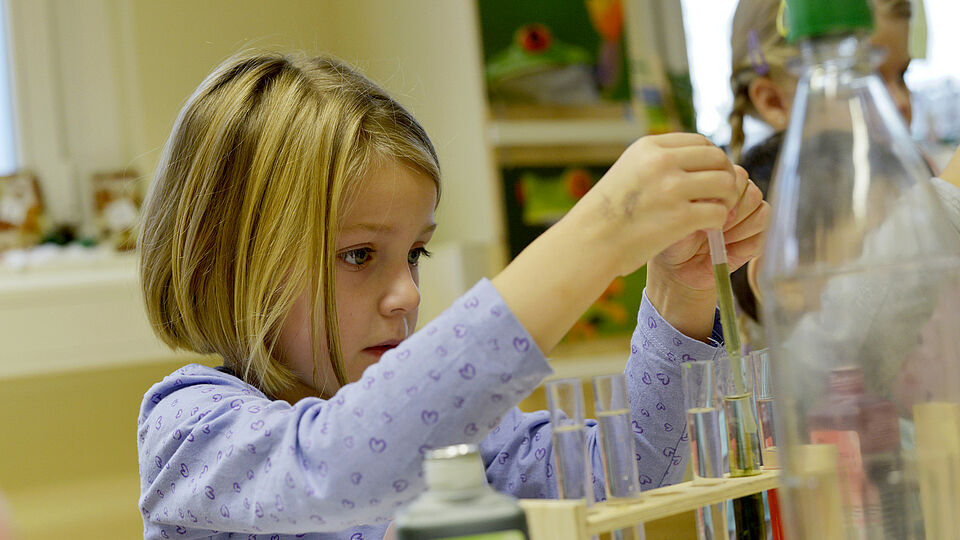
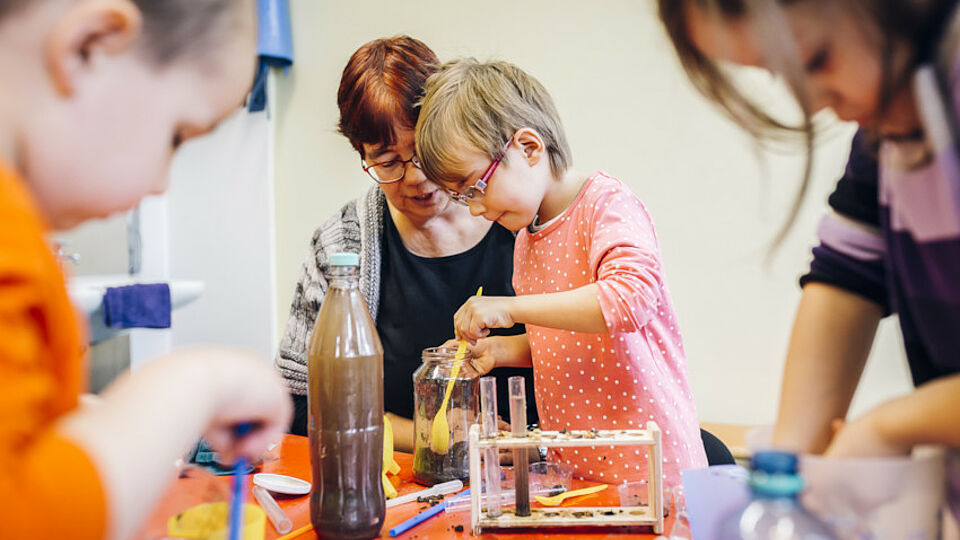
Most activities take place using everyday items found around the home or outside, something that the foundation is keen to encourage. ‘We ask parents to bring objects in from home, like the hairdryers,’ explains Mr Besser. ‘They are very interested in what we are doing.’ After the hairdryer session, the children will go back and tell their friends what they have learned. ‘The reflecting is part of the process,’ says Mr Besser.
Science is not limited to the ‘science room’. Children often go out on nature walks, for example, and are endlessly fascinated about the things they find. ‘There were some mushrooms growing and the children thought they looked like little ghosts,’ says Mr Besser. ‘They are excited about nature because they can make up their own stories about it. They can bring their questions back here and discuss them or they can learn more about mushrooms from books. It starts with a story about ghosts and ends with children knowing more about different kinds of mushrooms. Or maybe we would cook with mushrooms in our kitchen.’
Early years practitioners are sometimes afraid they won’t know the answer to a child’s question. But such questions can be the gateway to learning for both adult and child. ‘The best questions children ask are the ones I don’t know the answer to,’ says Mr Besser. ‘It frees me up. If you know the answer, you are the one to tell it to the children, but if you don’t know it, you can work together to find it out – you are more involved because you want to know the answer as well.’
Children’s names have been changed

